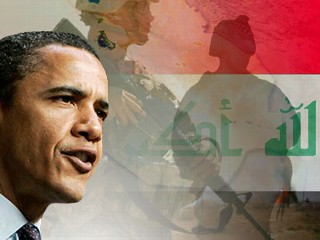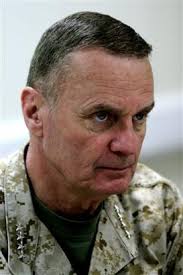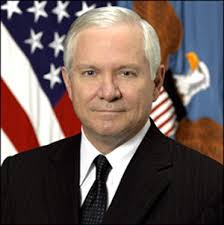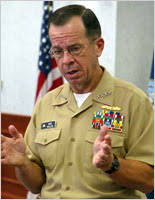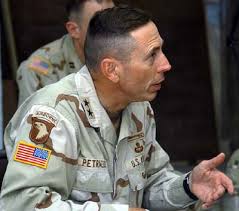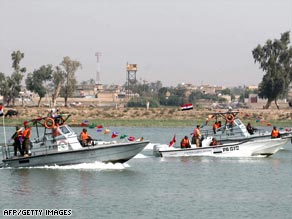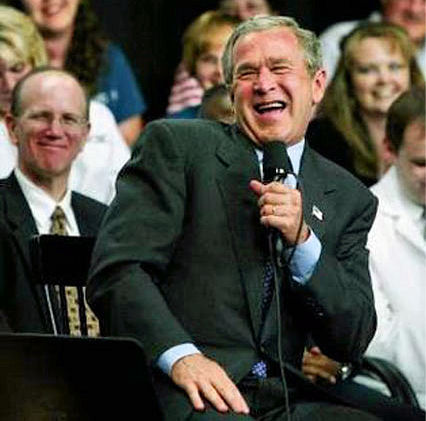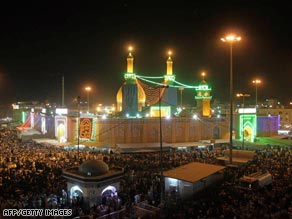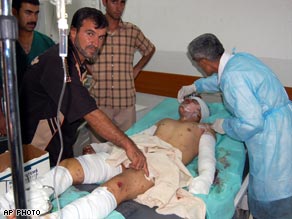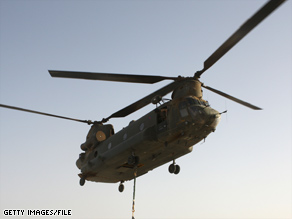 Prime Minister of Iraq Nouri Maliki cast his vote.
Prime Minister of Iraq Nouri Maliki cast his vote.
"A new dawn, God willing," said Sabah Bashir Hassan, known as Abu Talib, who leads thousands of former insurgents and others in the Popular Committees, the name here for the U.S.-backed Sunni militia that fought the insurgent group al-Qaeda in Iraq.
"To me, the elections represent the point between darkness and light," the Sunni leader said. "Everybody wants to turn a page on the past. We're turning a new page over today."
Iraqis vote in provincial elections under tight security. The vote is seen as a test for the nation's stability as the U.S. weighs dialing down its troop presence here.
US President Barack Obama has congratulated Iraqis for holding a largely peaceful vote for provincial councils across the country.
He called the elections "an important step forward" for Iraqi self-determination.Mr Obama urged the newly elected councils to "get seated, select new governors, and begin work on behalf of the Iraqi people who elected them".
The elections were held in 14 of the country's 18 provinces, with more than 14,000 candidates competing for just 440 seats.
There was no voting in the three provinces of the semi-autonomous Kurdish region of the north and the ballot was postponed in oil-rich Kirkuk province.
There was a strong turn-out in Sunni areas, which boycotted the last polls.
The first nationwide vote in four years is seen as a test of stability before a general election due later this year.Displaced Kurds Demanded Vote
Hundreds of Iraqi Kurds stormed an electoral commission office in northeast Iraq on Saturday claiming they were displaced residents of Khanaqin and demanding to vote, an official said.
“The Kurds entered the election commission office and asked to vote because they said they were people displaced by Saddam Hussein,” an official from the electoral commission told AFP.
The issue was resolved when those holding identification from Khanaqin were allowed to vote in the provincial elections that were held on Saturday, the official added.
During Saddam’s reign tens of thousands of Kurds were forced to relocate to the Kurd regions in northern Iraq, as part of the dictator’s Arabisation plans.
Many of those 16,000 residents have returned in the wake of the 2003 US-invasion which deposed Saddam, renewing tensions and sparking rival territorial claims between Kurds and Arab Shiites.
The town of Khanaqin in northeast Diyala province is near the border with Iran and holds sizeable oil reserves.
The local Kurdish political leadership has called for Khanaqin to join the adjoining autonomous Kurdish region in northern Iraq
Four thousand women are running for office in Iraq
BAGHDAD, Iraq (CNN) -- Four thousand women are running for office in Iraq's provincial elections Saturday, and many of them will be guaranteed seats under an electoral quota system.
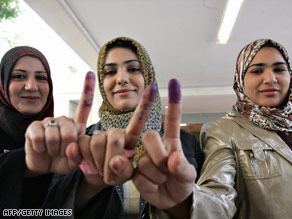
Iraqi women show off their ink-stained fingers after voting Saturday in Baghdad.
Regardless of the votes their candidates receive, parties are required to give every third seat to a woman, according to a report this week from the International Crisis Group.
The ultimate share of seats held by women will depend on the distribution of votes among parties, the report said.
Some women candidates say these elections -- only the second provincial elections since the fall of Saddam Hussein -- are a chance to improve their standing in Iraqi society.
Nibras al-Mamuri is a secular female candidate who argues that fundamentalists have taken over the country. She says it was the 2005 elections that brought them into power and tarnished Islam's image in Iraq.
Al-Mamuri, who is running for the Baghdad provincial council, says it's time for a change. ![]()
"Although a woman's role in the Arab world is mainly that of a mother and child bearer," she said, "I want to prove that women are just as capable as men when it comes to challenging
At first, al-Mamuri said, she thought just participating in the elections as a woman was enough. But now, she says she is running to win in order to defy men who believe a woman's place is in the home.
"I've entered a battlefield where women have to prove they are competent," she said. "I have to forget about fear."
In recent years, Iraqi women have been targeted by extremists for a variety of reasons -- from not covering their hair to entering the political arena.
Under Hussein, Iraq was one of the more secular Arab countries, but the 2003 U.S. invasion unleashed extremist militias. Now, many activists say women have been forced back to the Dark Ages, forced to be submissive, anonymous and fully veiled.
Al-Mamuri said she believes Saturday's vote can help women improve their position in society.
"An Iraqi woman can be an equal. She can participate in change," she told CNN.
The image of a woman posing a public and direct challenge to fundamentalists and their beliefs was not seen in the 2005 vote.

"Iraqi women form the core of society," said Rissala Khalid, another female candidate in Baghdad.
Passing out her campaign card, Khalid told young women that she will fight for their rights, and told young men that she will try to provide jobs for Iraq's largely unemployed youth.references:
http://baghdadbureau.blogs.nytimes.com/2009/01/31/kirkuk-the-province-that-couldnt-vote/?partner=rss
http://www.cnn.com/2009/WORLD/meast/01/31/iraq.women/index.html
http://news.bbc.co.uk/2/hi/middle_east/7863342.stm
http://www.khaleejtimes.com/DisplayArticleNew.asp?col=§ion=middleeast&xfile=data/middleeast/2009/January/middleeast_January603.xml
